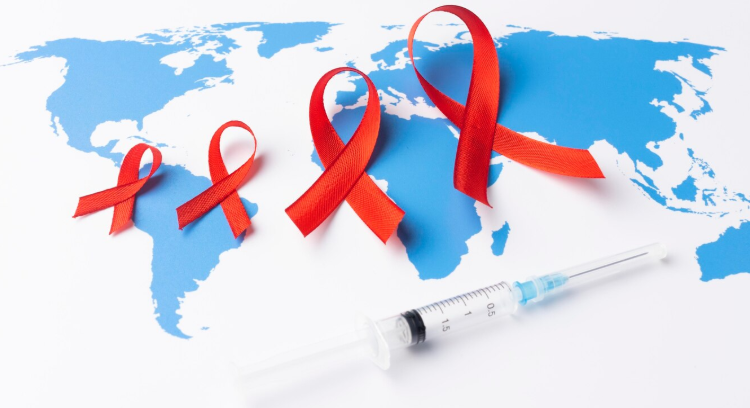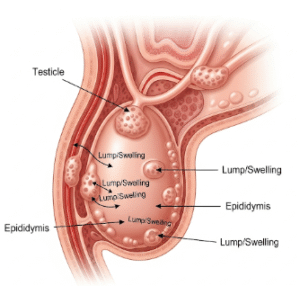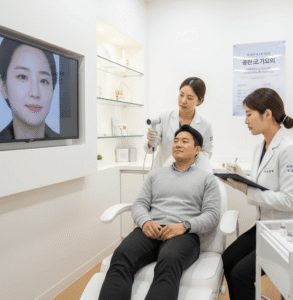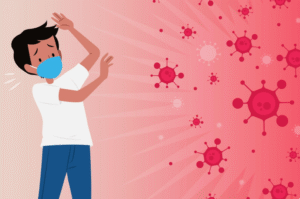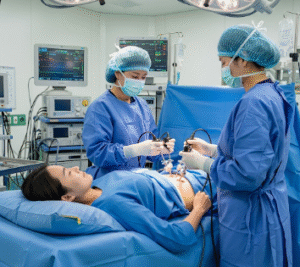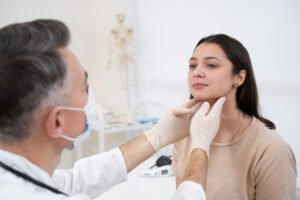Overview
HIV (Human Immunodeficiency Virus) infection and AIDS (Acquired Immunodeficiency Syndrome) are significant global health issues, including in South Korea. Although Korea has a relatively lower prevalence compared to some regions, the number of cases has gradually increased, particularly among younger populations. With advanced healthcare infrastructure, Korea provides confidential testing, effective treatment with antiretroviral therapy (ART), and long-term support systems to ensure people living with HIV can lead healthy lives.
What is HIV Infection and AIDS?
HIV is a virus that attacks the immune system, specifically the CD4 cells (T-cells), weakening the body’s ability to fight infections and certain cancers. Without treatment, HIV can progress to AIDS, the most severe stage of the infection, characterized by life-threatening infections or malignancies. In Korea, early detection and ART have significantly reduced the progression to AIDS.
Symptoms
HIV symptoms may vary depending on the stage:
- Acute HIV infection (2–4 weeks after exposure):
- Fever
- Rash
- Sore throat
- Swollen lymph nodes
- Muscle aches
- Chronic HIV infection:
- Fatigue
- Weight loss
- Recurrent infections
- Prolonged diarrhea
- Night sweats
- AIDS stage:
- Opportunistic infections (tuberculosis, pneumonia, fungal infections)
- Certain cancers (Kaposi’s sarcoma, lymphoma)
- Severe immune suppression
Causes
- Unprotected sexual contact with an infected person
- Sharing contaminated needles or syringes
- Mother-to-child transmission during childbirth or breastfeeding
- Blood transfusions (rare in Korea due to strict screening systems)
Risk Factors
- Unprotected sex (especially among men who have sex with men, a growing concern in Korea)
- Multiple sexual partners
- Intravenous drug use with shared needles
- Lack of awareness or late testing
- History of other sexually transmitted infections (STIs)
Complications
If untreated, HIV can lead to:
- Progression to AIDS
- Increased susceptibility to opportunistic infections
- Certain cancers (cervical cancer, Kaposi’s sarcoma, lymphomas)
- Neurological complications (HIV-associated dementia)
- Reduced life expectancy
Prevention
- Practicing safe sex (condoms and regular STI screenings)
- Pre-exposure prophylaxis (PrEP), increasingly available in Korea for high-risk groups
- Post-exposure prophylaxis (PEP) after suspected exposure
- Needle exchange programs for drug users
- Routine HIV testing, especially for high-risk individuals
- Strict screening of donated blood in Korea’s healthcare system
Treatment Options in Korea
South Korea offers advanced HIV treatment and long-term management, supported by government policies and top hospitals:
- Diagnosis:
- Confidential HIV antibody and antigen tests available at local health centers and hospitals
- PCR testing for early detection of the virus
- Free or low-cost anonymous testing services are available in major cities like Seoul and Busan
- Medical treatment:
- Antiretroviral therapy (ART): Widely available and provided under Korea’s National Health Insurance coverage
- Combination therapy (HAART) including integrase inhibitors, protease inhibitors, and reverse transcriptase inhibitors
- Free ART medication for eligible patients under government support programs
- Specialized care:
- Major hospitals like Seoul National University Hospital, Asan Medical Center, and Samsung Medical Center offer HIV clinics with infectious disease specialists
- Multidisciplinary care including mental health support, nutrition counseling, and prevention of opportunistic infections
- Community and support services:
- NGOs and HIV support groups in Korea provide counseling, education, and stigma reduction programs
- Increasing public health campaigns to reduce discrimination and encourage early testing
With Korea’s robust medical infrastructure and commitment to public health, people living with HIV can expect effective management, improved quality of life, and normal life expectancy when adhering to treatment.

